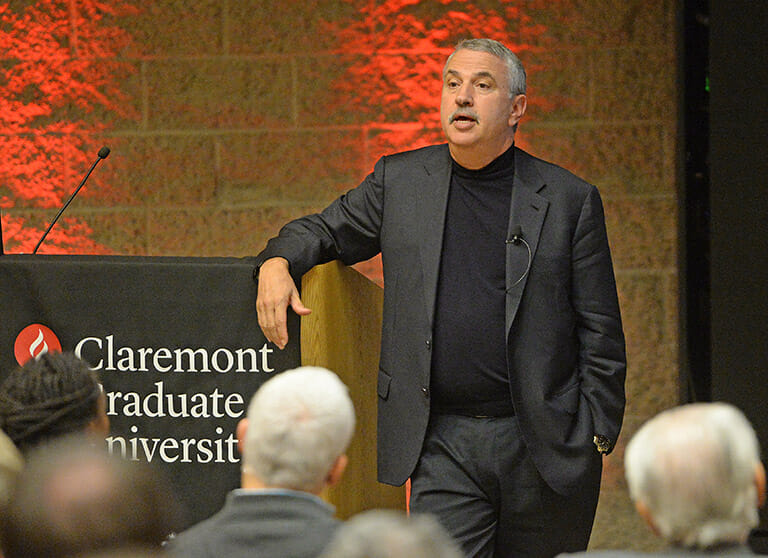New York Times’ Thomas Friedman Speaks at CGU

We are at a wholly unique point in human history.
According to three-time Pulitzer Prize winner and New York Times columnist Thomas L. Friedman, humans have reached “the greatest technological inflection point since Gutenberg.” Citing technological advances, Friedman said we are at a “moral intersection”—the point “where one of us can kill all of us and all of us can fix everything.”
The award-winning writer discussed his new book—Thank You For Being Late: An Optimist’s Guide to Thriving in the Age of Accelerations—during a nearly two-hour talk held December 9 in Claremont Graduate University’s Albrecht Auditorium. The event was co-hosted by CGU and Live Talks L.A. Friedman’s visit is the inaugural event in a new speaker series at CGU; the next scheduled speaker is John Micklethwait, editor in chief of Bloomberg News.
In talking about his book, ideas, and experiences, Friedman discussed the consequences of this new world digital order, and the potential solutions and recommendations for coping and adapting to this “age of accelerations.”
Friedman touched on several ideas and experiences during the talk:
- Advice to journalists: “Be a good listener. It’s a sign of respect.”
- His description of the internet: “A realm where we are all connected, but nobody is in charge.”
- The importance of human connection: “The best things in life you don’t download. The best things are ‘uploaded’ from one person to another.”
- Taking ownership of problems and issues: “If you are not promoting ownership, you are not promoting education.”
Friedman said the acceleration in modern life can be traced to three technological changes in access to digital information—mobility, broadband, and the cloud—that began coming together around 2007. His response to this acceleration? To “pause, to slow down, to think and reflect.”
In his previous bestselling books—including The World is Flat and Hot, Flat, and Crowded—Friedman examined the impact and consequences of our increasingly globalized world.